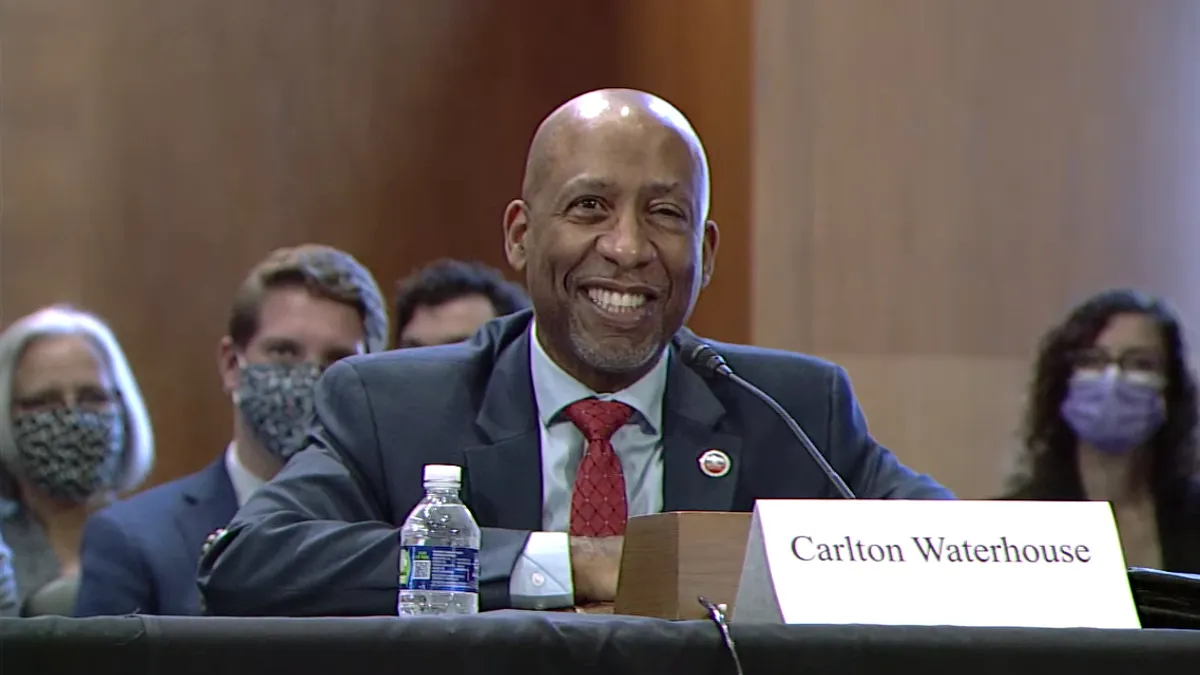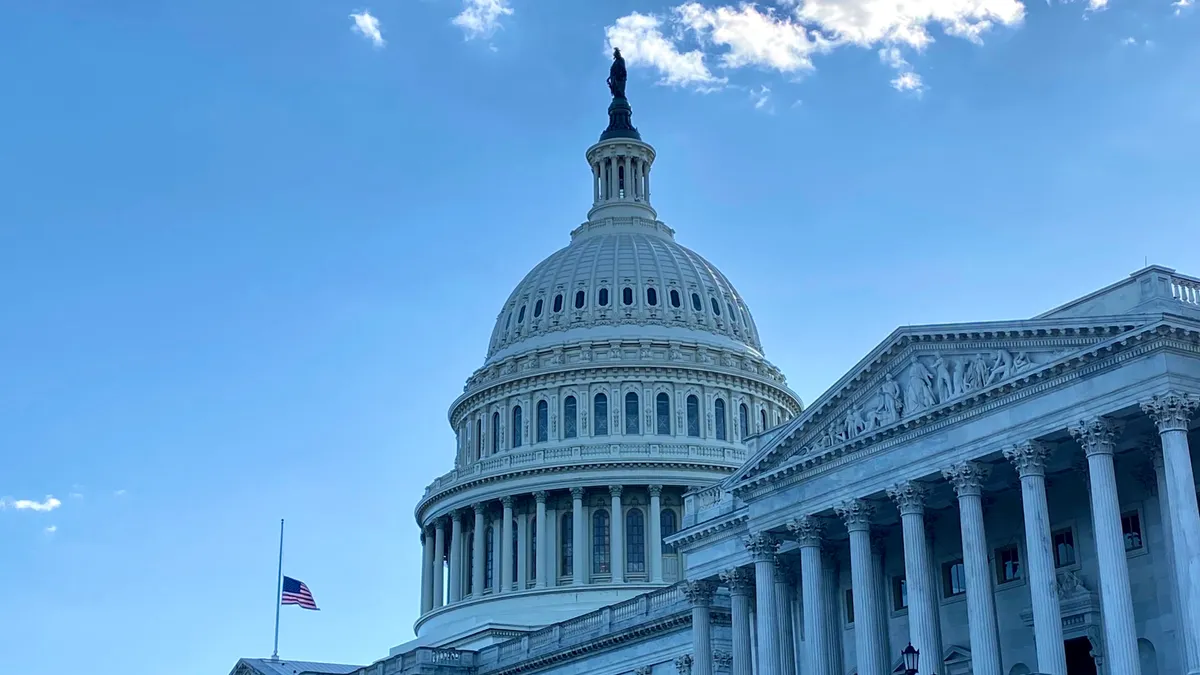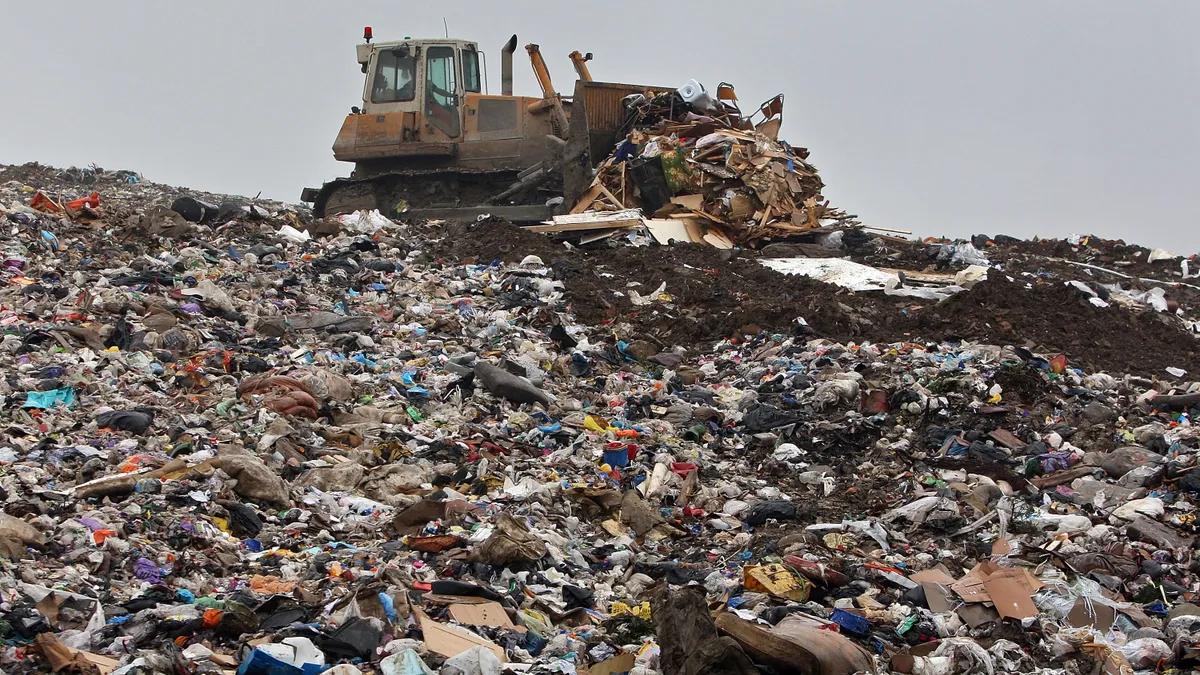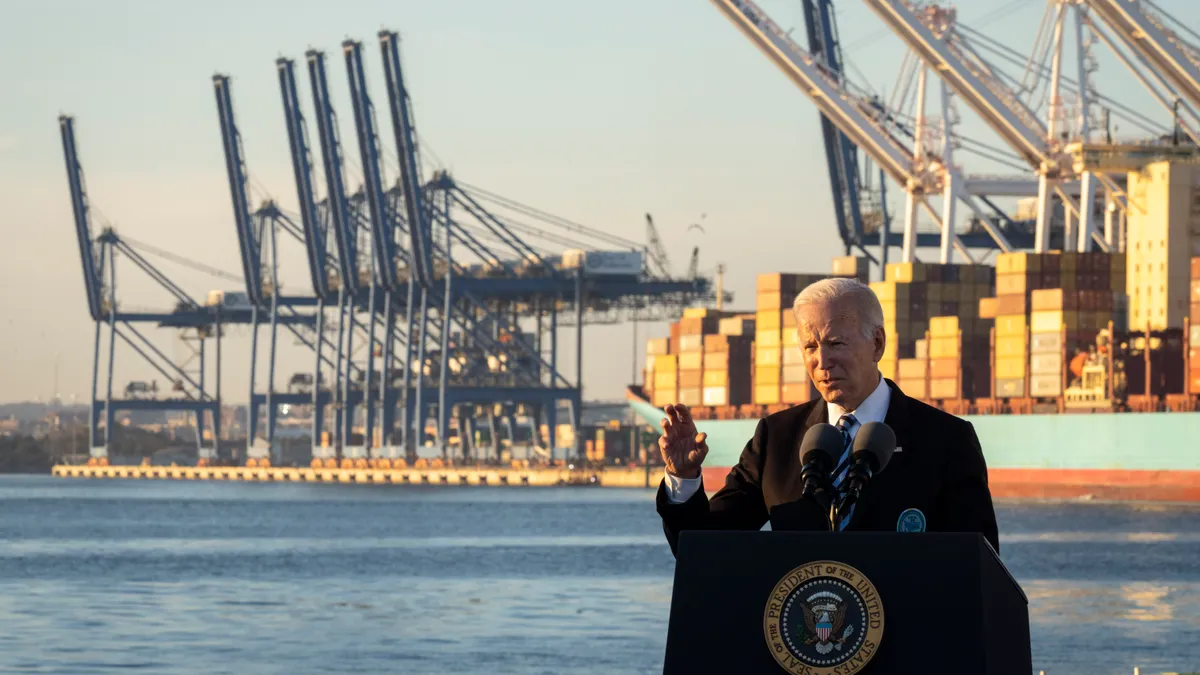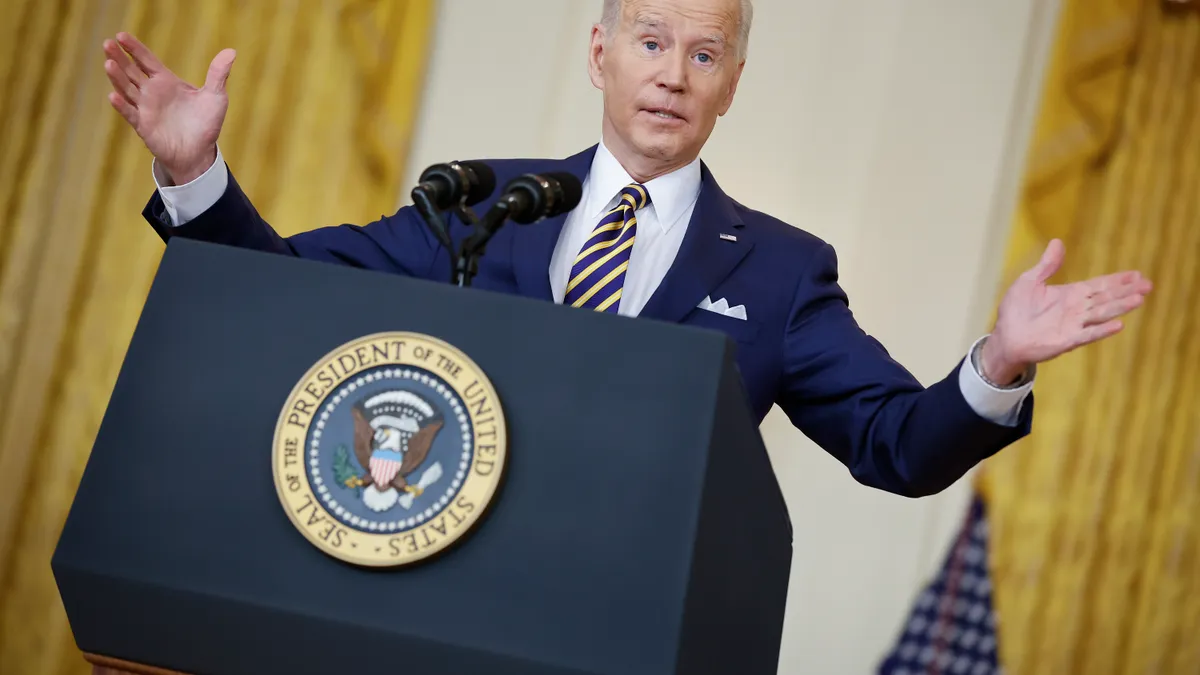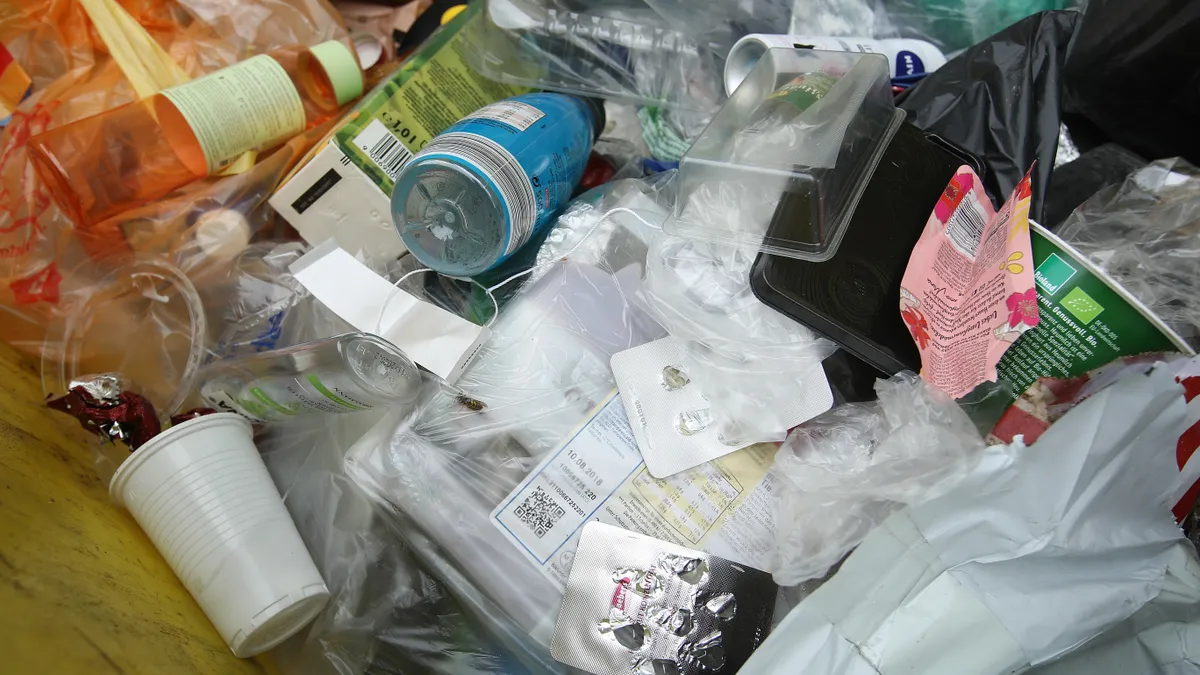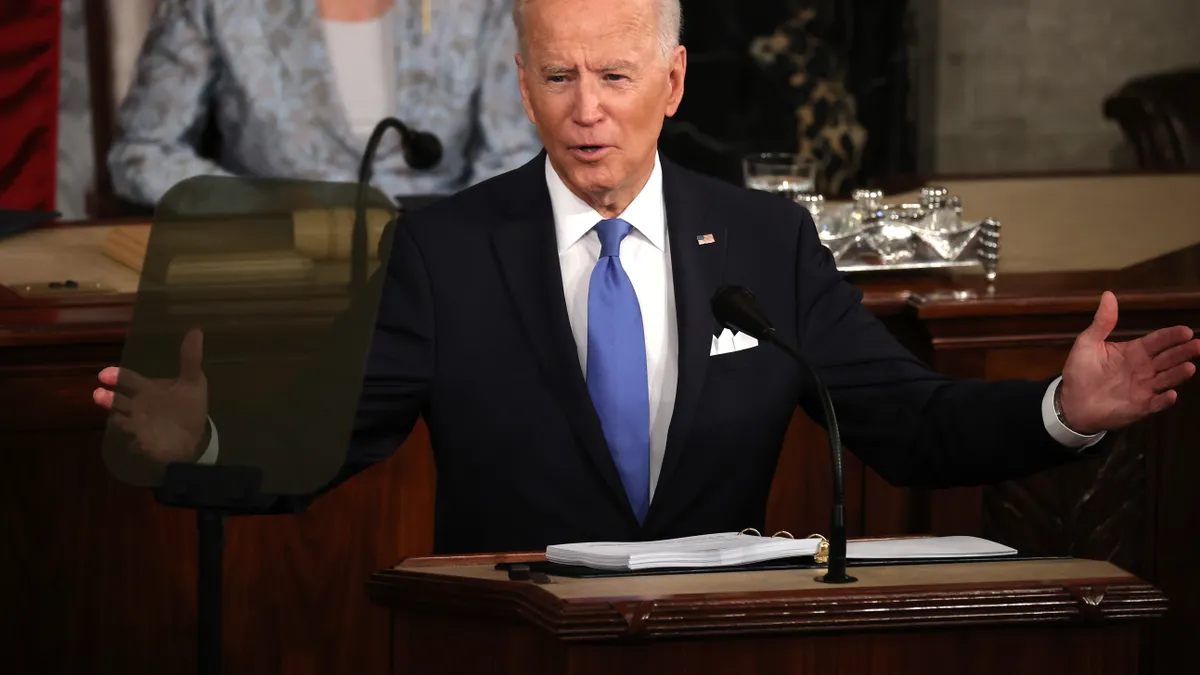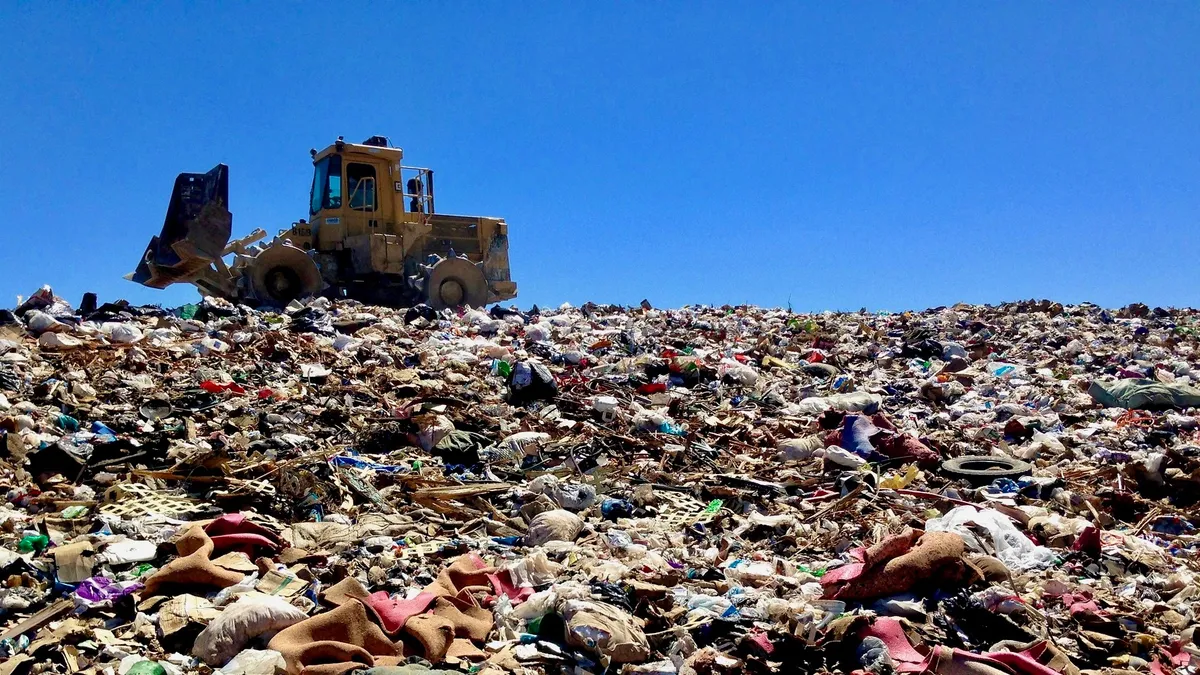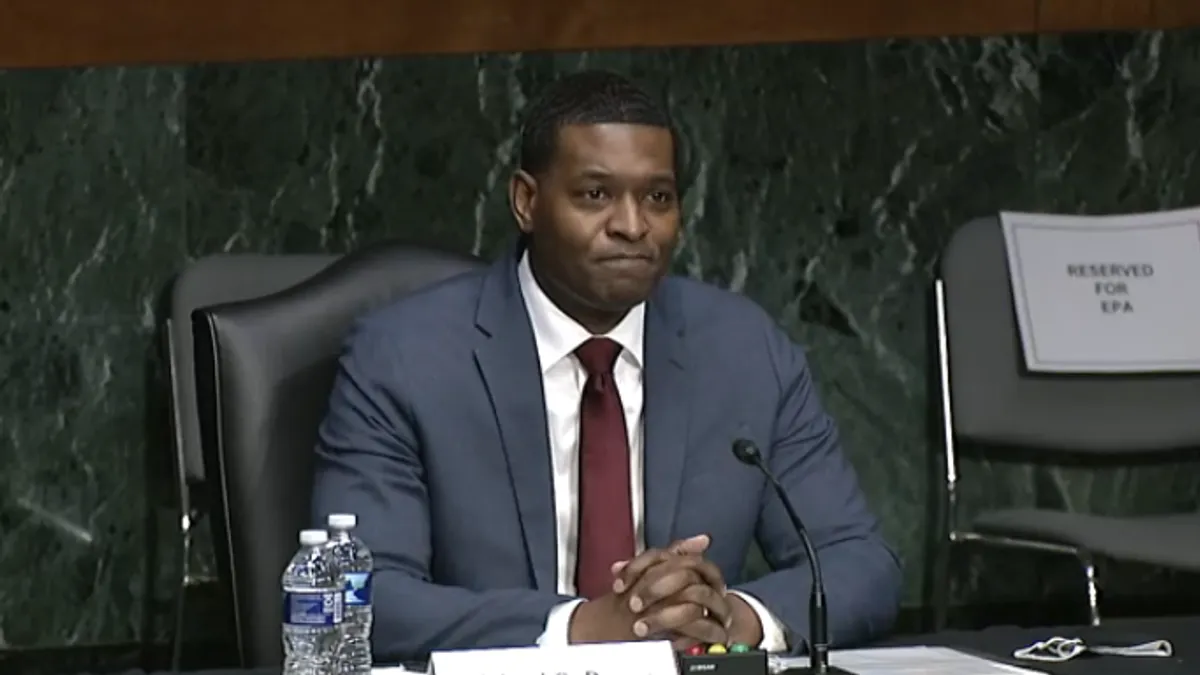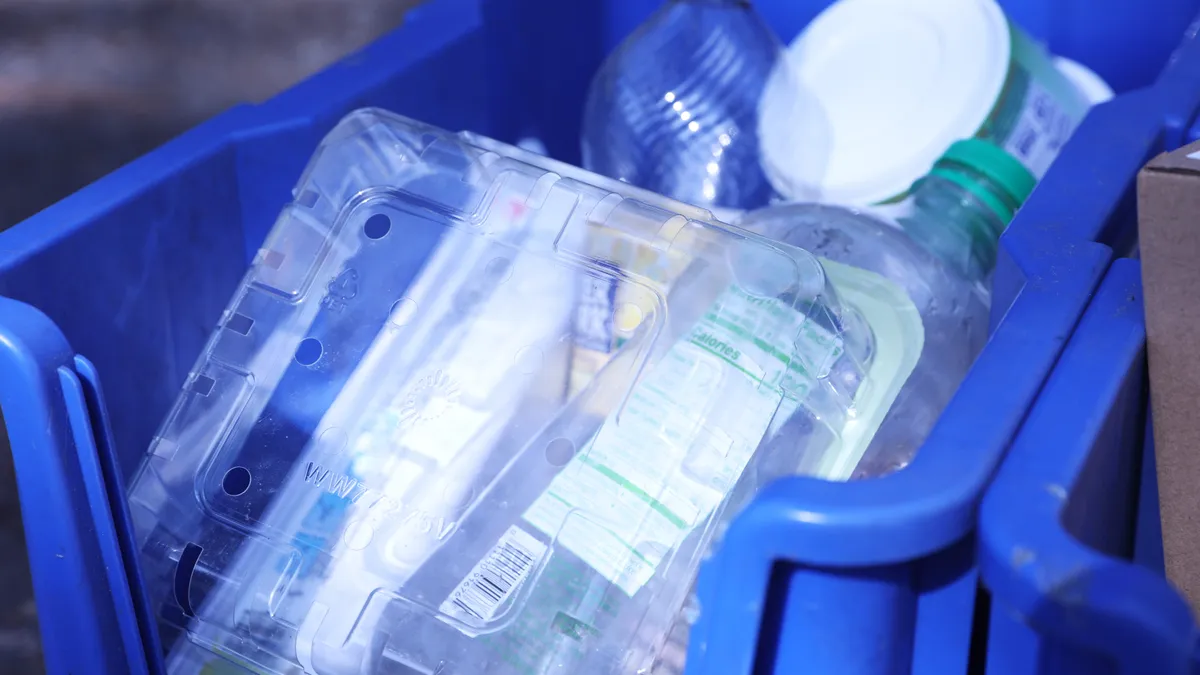Dive Brief:
- The Senate Committee on Environment and Public Works has again voted 10-10 to report Carlton Waterhouse’s nomination as the assistant administrator of the U.S. EPA’s Office of Land and Emergency Management (OLEM). It’s the second time the committee has been split on Waterhouse’s nomination.
- The tie vote will now go to the Senate floor, but Senate Majority Leader Chuck Schumer will first need to make a motion to discharge EPW from further considering his nomination, according to a Senate Democratic aide.
- If confirmed, Waterhouse, currently OLEM's deputy assistant administrator, has said he’ll continue to focus on environmental justice, PFAS management and climate change efforts, which are Biden administration priorities.
Dive Insight:
Waterhouse's nomination has been moving through the confirmation process since President Joe Biden announced the pick in June 2021. Shelley Moore Capito, R-W.Va., a ranking member of the committee, is among those who opposed the nomination. She also voted no at Waterhouse’s previous hearing in December, saying at the time she did not believe he could do the job “from an unbiased perspective, especially when addressing the energy sector.” Before Thursday’s vote, Capito did not voice additional comments, instead submitting written testimony for the record. Among those supporting the nomination were Sen. Tom Carper, D-Del., chairman of the committee, who on Thursday called Waterhouse “talented and dedicated.”
During his first Senate confirmation hearing in September, Waterhouse called for rulemaking that would give the EPA more authority to respond to PFAS contamination issues and said the agency is working quickly to designate certain PFAS chemicals as hazardous substances. He also said he would continue supporting programs meant to protect disadvantaged communities from air and water pollution and revitalize polluted areas through efforts like the EPA’s brownfield remediation program.
Waterhouse said at a recent Society of Environmental Journalists conference that one of the first instances in which he worked on environmental justice issues was as an attorney for EPA Region 4 in 1991. He also has a background in Superfund and Resource Conservation and Recovery Act programs. In the 1990s, he worked with state officials to obtain the country’s first approvals for Subtitle D landfills, which include MSW landfills.
During a panel discussion with EPA officials at the April 1 SEJ event, Waterhouse repeatedly said environmental justice and climate are embedded in every decision and action the agency takes.
“It’s critical that we protect everybody, and that the amount of money you make, or the color of your skin, or the language you speak shouldn’t determine whether or not you get sick and die from pollution," he said. Waterhouse added that the agency is “changing the way people have thought about environmental justice for decades.”
He touted funding in the recently passed infrastructure law meant to address those efforts, including $3.5 billion for Superfund cleanups prioritizing 49 sites in the program’s backlog, with environmental justice as a key lens. He also highlighted the bill’s $1.5 billion for brownfield projects and $375 million for recycling efforts. "Capacity building" is a key focus for distributing this money, including in the recycling and waste sector, he said at the event. Waterhouse also mentioned an EPA-wide goal to promote more diversity, equity and inclusion in hiring practices at the agency.
Waterhouse is known for speaking openly about the disproportionate impact pollution has on Black residents and how the racism and discrimination he has faced shaped his motivations for working on environmental justice issues. This has drawn criticism from some Republicans and conservative organizations, The Hill reported.
Cole Rosengren contributed to this report.


